- Home
- James Swain
Deadman's Bluff tv-7 Page 9
Deadman's Bluff tv-7 Read online
Page 9
“Because I like it,” Little Hands said.
16
“Have you ever seen one of these before?” Detective Joey Marconi asked.
Gerry Valentine tiredly shook his head. Late morning, and he was sitting in the hospital visitors’ area with Eddie Davis’s partner, having spent several hours going over what had happened outside Bally’s.
Marconi was holding a New York Yankees baseball cap. He’d found the cap on the floor of Bally’s while chasing the other members of Abruzzi’s gang, who’d escaped out the casino’s rear exit. The cap had a miniature receiver and three light-emitting diodes sewn into its rim, and had been used to rip Bally’s off at blackjack.
Gerry had seen some sophisticated cheating equipment since going to work for his father, but the cap was unique. By looking upward into the cap’s rim, a cheater could read signals being sent by another member of the crew. Like looking at a tiny movie screen, Gerry thought.
“Do you know how the cap works?” Marconi asked.
“I think so,” Gerry said.
Marconi was on his sixth cup of coffee, and as animated as a five-year-old with a sugar buzz. He was small and wiry and so Italian he looked Greek. He wore the standard undercover detective’s uniform: blue jeans and a sweatshirt with a pullover hood. Across the front of the sweatshirt were the words I’M BLIND, I’M DEAF, I WANT TO BE A REF!
“You have to do better than that, Gerry,” Marconi said.
“I do?”
“Yes. Your story will determine how this case is handled.”
“Handled by who?”
“The district attorney.”
Gerry took a deep breath. This wasn’t going right. Marconi was treating him like a suspect, instead of someone who’d saved his partner’s life. He put his elbows on his knees, and gave Marconi a hard look.
“Excuse me, but what am I missing here? Abruzzi was going to shoot Eddie. I did the only thing I could.”
“I believe you, but we have to make sure the district attorney believes you.”
“Why wouldn’t he? You have the gun, don’t you?” Marconi lowered his gaze, and stared at the floor. It was the quickest admission of guilt Gerry had ever seen.
“You don’t have the gun?” Gerry asked.
“Couldn’t find it,” Marconi said, eyes still downcast. “I had two uniforms stay and search the area after day break. The gun is gone.”
“Meaning what?”
“Meaning that we don’t have evidence that the guy you killed actually took a shot at Eddie, as you and Eddie claim.”
“What about the car across the street that got winged?” Gerry asked. “That’s evidence, isn’t it?”
“The car is gone, too,” Marconi said, not enjoying the role reversal.
“Gone? How does that work? Mirrors?”
“We’re not sure.”
“Let me guess. One of the uniforms let the owner drive it away.”
Marconi massaged his face with his hands. “Probably.”
Gerry had grown up hearing about bone-headed mistakes made by cops. The average pay for a uniform on the AC police force was twenty-eight grand. As a result, the force didn’t always attract the best and the brightest, and mistakes at crime scenes were common.
“So what you’re saying is, I might be facing a manslaughter rap,” Gerry said.
Marconi looked up. “That’s not going to happen. You have my word.”
“But it could happen.”
“Let’s not go there. We need to concentrate on your story. I want to explain to the DA that this was an organized gang of cheaters. Right now, all I’ve got is this baseball cap. If you can explain how it works, we’re home free.”
“Do you know what a crossroader is?” Gerry asked.
Marconi clutched a cup of machine-made coffee. “That’s a cheater who specializes in ripping off casinos.”
“Correct. The most important weapon in a crossroader’s arsenal is signaling, or what crossroaders call giving the office. Here’s an example.” Gerry spread his fingers out wide. “This is called George, and is usually done on the table, or with the hand held flat against the chest. What do you think it means?”
Marconi shook his head.
“George means everything is okay. If five cheaters are spread out across a casino, they can use George to communicate that the coast is clear. Here’s another example.” Gerry made his hand into a fist. “This is called Tom. It’s also done on the table, or against the chest. Tom means there’s a problem, and everyone needs to clear out.”
“Tom is also a criminal name for the police,” Marconi said.
“Maybe that’s where it came from,” Gerry said. “My father busted a gang using George and Tom to cheat a blackjack game. The dealer was involved, and flashing cards to her accomplices as she dealt. The flashing was invisible to the eye-in-the-sky cameras, but could be spotted by a pit boss standing behind her. Her accomplices used George and Tom to tell her when the pit boss was there, and when he wasn’t. They stole over a half million dollars using just two signals.”
The baseball cap lay on a coffee table. Gerry pointed at the receiver and LEDs stitched into the rim. “The gang inside Bally’s was using electronic signals. We know they had a woman nail-nicking cards at blackjack. Once the cards at a table were marked, two members of the gang used the information to beat the house.”
“How?” Marconi asked.
“You play much blackjack?”
“No.”
“It’s a simple game. The dealer gets two cards, one face up, the other face down. The players also get two cards, and try to get a total closer to twenty-one than the dealer. Because the dealer goes last, the house has an edge of one and a half percent.
“When cheaters nail-nick cards, it allows them to read the dealer’s face-down card, and know the dealer’s total. This gives them a fifteen percent advantage. But, the cheaters must be careful. Staring at the dealer’s hand is a dead giveaway that marked cards are in play.”
“Makes sense,” Marconi said.
“Here’s what the gang in Bally’s was doing. One member sat to the dealer’s right. He read the nicks on the dealer’s face-down card, and sent the information to his partner through a tiny transmitter strapped under his pant leg. His partner played the Iggy, or dumb tourist.
He drank and smoked and horsed around. He also read the signals in his baseball cap, and beat the house silly.”
Marconi thought it over. “Let me play devil’s advocate for a minute. What if the district attorney says the LEDs inside the cap are decorative. Plenty of people wear lights and electronic doodads in baseball caps. What do I say then?”
“The cap has a receiver,” Gerry said. “According to the New Jersey device law, no person shall possess any calculator, computer, or any other electronic, electrical, or mechanical device to assist in projecting or altering the game’s outcome.”
A thoughtful look crossed the Marconi’s face.
“That will work,” the detective said.
Gerry took out his cell phone. He needed to call his father, and get him up to speed. He wondered what his father would say upon hearing that Gerry had killed a member of George Scalzo’s crime organization.
A female cop entered the visitors’ area. The bland contours of her uniform could not hide her stunningly attractive figure. She pulled Marconi into a corner, spoke in a hushed voice, then handed him a thick Pendaflex file from under her arm. Marconi opened the file, his dark eyes scanning the page, then glanced nervously at Gerry.
“Thanks, Ellen,” he said.
She left. Marconi came over to where Gerry was sitting, and dropped the folder in Gerry’s lap. Then he sat down across from him.
“We need to talk,” Marconi said.
Gerry put his cell phone back into his pocket. “What’s wrong?”
Marconi pointed at the folder. “That.”
Gerry opened the file, and found himself staring at a Xeroxed memo from the Atlantic City Casino Contr
ol Commission. His name was on the center of the page and highlighted in yellow marker. He glanced at the other memos beneath it. His name was highlighted in yellow on them as well.
“What are these?”
“Memos from the Atlantic City Casino Control Com mission on which your name appears,” Marconi said. “Out of curiosity, I had Ellen do a name search through the computer. That’s how many files the CCC has on you. Your name is linked to more gambling scams in Atlantic City than anyone else in the computer. Tell me how I’m going to explain that to the district attorney.”
Gerry dropped the folder on the coffee table. A few hours ago he’d killed a scammer; now Marconi had evidence that said he was also a scammer. It didn’t paint a pretty picture, and he decided to come straight with the detective.
“Does it bother you that I was never arrested?” Gerry asked.
“So you were smart.”
“My name’s on fifty memos. That would make me a genius, don’t you think?”
Marconi leaned back in his chair. “Okay, so what’s your point?”
“Cops think that wherever there’s smoke, there’s fire,” Gerry said. “But there isn’t any fire here. Before I went to work for my father, I was a bookie. I did good business, and I’m not ashamed of it. I also had a reputation as being Tony Valentine’s son. Every scammer in the Northeast knows who my father is. Guys would come to me and ask me my advice.”
“What kind of advice?”
“They would be thinking about scamming a casino in Atlantic City. They would tell me what they were going to do, ask me if I thought my father had ever seen it before. When I was a kid, my father used to show us scams at the dinner table. I was exposed to a lot of amazing stuff when I was growing up. I also understand how my father thinks. I’d look at the scam, and tell them if I thought it would pass muster.”
“You charge for this?”
“No.”
“Then why did you do it?”
“The guys I helped out referred customers to me.”
“That’s sweet. How many guys did you tell not to bother?”
“Nearly all of them,” Gerry said. “Most of the scams were old, stuff my father had seen before. To be honest, I think I saved the taxpayers a lot of money.”
“How so?” Marconi asked.
“I kept those guys out of jail, and saved the taxpayers from having to pay for it.”
Something resembling a smile crossed Marconi’s face. He took the file and slapped it against Gerry’s leg, then rose from his chair. “A regular public servant. I’m going to go have a talk with the DA. Don’t go anywhere.”
Gerry realized he was off the hook. Marconi left, and Gerry took out his cell phone and called his father.
17
“Y ou did what?” Tony Valentine asked, the cell phone pressed to his ear.
“I killed a guy who works for George Scalzo,” his son said. “He was trying to shoot Eddie Davis outside Bally’s. I rammed Eddie’s car into the back of the guy’s car, and sent him through the windshield.”
Valentine closed his eyes. “Jesus, Gerry. You killed a mobster.”
“I know, Pop. Think I should go into witness protection?”
“That’s only for criminals,” Valentine said.
“Bet I could tell the police a couple of things that would make me qualify.”
Valentine found it in him to laugh. He was still in Gloria’s suite, the sunlight splashing through the window. Over the years, he’d become convinced that casino hotels did everything imaginable to drive guests out of their rooms during the day, from having chambermaids come early to clean, to facing the rooms due east so they became flooded with light each morning.
“I do have some good news,” his son said. “I talked to a nurse at the cancer ward where Jack Donovan died. She remembered Jack, and said she’d search her computer to see if anything dangerous was stolen from the hospital.”
“I’m not concerned about Jack right now,” Valentine said, closing the blinds. “I’m concerned about you. Scalzo won’t take this lying down. He already has a contract out on me.”
“He does?”
“Yes. I’m having to watch my back,” Valentine said.
“So, here’s what I want you to do. Catch the next plane home. Better yet, catch the next plane to San Juan, and meet up with Yolanda. Lay low for a while, so I can figure out what to do.”
There was silence on the line. Valentine would have thought the connection had gone dead had he not heard his son cough. He went to the table where the breakfast he’d shared with Gloria still sat. A piece of cold bacon found its way to his mouth.
“I’m going to stay in Atlantic City,” his son said.
Valentine nearly choked. “What are you talking about? You could get whacked.”
“I owe it to Jack Donovan.”
“What about your wife and daughter? What do you owe them?”
“Pop, remember the conversation we had before I left Vegas?”
Valentine thought back to the day before. So much had happened since, it seemed like last month. He picked up another piece of bacon and bit into it.
“I may be your son, but I’m also your partner,” Gerry went on. “When things happen you don’t like, you can’t switch roles, and order me around because I’m your son.”
“I can’t?”
“No. I came to Atlantic City to find out how Jack’s poker scam works. Just because I’ve got some mobster pissed off at me doesn’t mean I should run.”
“But your life’s in danger.”
“It’s part of the business,” Gerry said. “Look, Pop, what if every time your life was in danger, I called you up and told you to run back to Florida, hide in your house, and make Mabel answer the door. Think you’d like that?”
Valentine bristled. “This is different.”
“Why it is different?”
“I’m your father.”
“You’re my sixty-three-year-old father, who probably shouldn’t still be playing cops and robbers,” Gerry said. “But you do, and I keep my mouth shut.”
“You think I’m playing cops and robbers?”
“It’s dangerous work, and you’re not a kid anymore.”
His son had a point. If last night was any indication, his ability to defend himself had diminished. He needed to be more realistic about what he could and couldn’t do.
“Do you worry about me?” Valentine asked.
“All the time.”
“Why haven’t you said anything?”
“I saw where it got Mom,” his son said.
When it came to catching crooks, Valentine had never let anything stop him. He couldn’t scold Gerry for wanting the same thing.
“So you’re staying in Atlantic City to figure out Jack’s secret,” he heard himself say.
“That’s right.”
“What about protection?”
“Eddie Davis and Joey Marconi said they’d help me out.”
“That’s only two guys.”
“I’ll be fine. Trust me.”
Valentine started to argue, then thought better of it. Gerry had to make his own decisions, and he could only pray that none of them would get his son killed. He heard a knock on the door. “I’ve got company. I’ll talk to you later.”
“You’re cool with my decision?”
“Yes. Just promise you’ll watch your back.”
“Love you, too, Pop,” his son said.
Valentine stuck the last strip of bacon into his mouth as he went to the door. He still ate bacon and eggs and lots of other food that wasn’t considered healthy, having decided that he’d rather exercise every day than not eat those foods. It was called living, and he was going to do it until the day he died.
He stuck his eye to the peephole. Rufus stood in the hallway dressed in a purple velour running suit and black high-top sneakers. He ushered the old cowboy in.
“How did you know where to find me?” Valentine asked.
“I had you pa
ged in the casino and the restaurants,” Rufus said. “Then I checked with the valet, and they said your car was still here. Since you and Ms. Curtis have been getting along so famously, I figured I’d find you here.”
Valentine’s cheeks burned. Hearing Rufus had found him so easily was unsettling.
“It’s not what you think,” he said.
Rufus flashed his best aw-shucks smile. His teeth, stained the color of mahogany from years of chewing tobacco, looked like pieces of antique furniture.
“Maybe not, but I bet it will be soon,” Rufus said.
Valentine’s cheeks burned some more. “So what can I do for you?”
“The Greek is taking me up on my Ping-Pong bet,” Rufus said. “He paid the hotel to put a Ping-Pong table in the poker room, then talked some sucker into playing me during the break. They’re waiting downstairs. I was hoping you’d act as my second.”
“Sure,” Valentine said.
Rufus removed a pack of cigarettes from his jacket pocket, banged one out, and tossed it into the air. The cigarette did a complete revolution, then landed on his outstretched tongue. He fired it up with a lighter.
“Who’s the sucker?” Valentine asked.
“Some Japanese guy named Takarama.”
Valentine had wanted to warn Rufus about Takarama the night before, but in all the excitement it had slipped his mind. “I hate to tell you this, but Takarama was the world table tennis champion a few years ago.”
Rufus took off his Stetson and scratched his skull. “Is he still in the tournament? The deal was, I’d only play someone still in the tournament.”
“Afraid so. Takarama’s a helluva poker player, too.”
Rufus smoothed the remains of his hair, covered it with his hat. “Let me ask you something, Tony. Would you bet against me? Hypothetically speaking, of course.”
“I’d have to say yes,” Valentine said.
“What kind of odds would you give me against Takarama?”
Valentine thought it over. He’d seen Takarama walking around the poker room the day before. The guy looked to be in tremendous shape.
“Twenty to one.”
“Think I can get that downstairs with any of the hairy legs?”
Hairy legs were the money men who backed poker players, and often could be spotted in the audience during tournaments, gnashing their teeth like berserk fathers at a Little League game. Takarama could always fall down and break his ankle, and he said, “Maybe ten to one.”

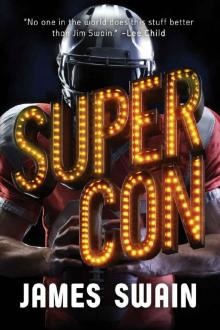 Super Con
Super Con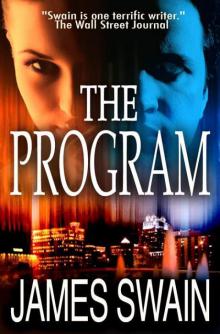 The Program
The Program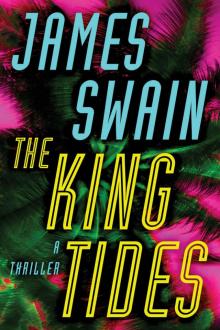 The King Tides (Lancaster & Daniels Book 1)
The King Tides (Lancaster & Daniels Book 1)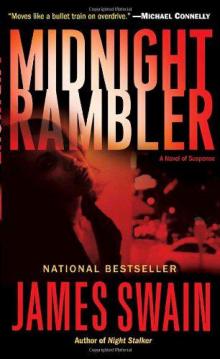 Midnight Rambler
Midnight Rambler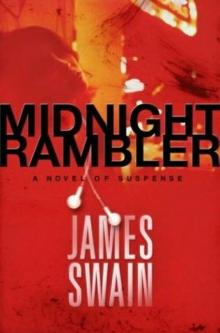 Midnight Rambler jc-1
Midnight Rambler jc-1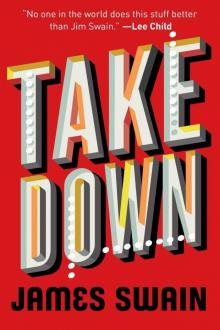 Take Down
Take Down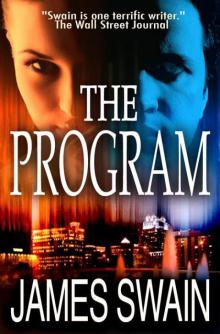 The Program (Jack Carpenter series)
The Program (Jack Carpenter series) Dark Magic
Dark Magic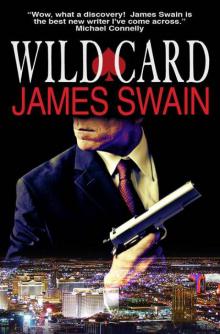 Wild Card (Tony Valentine Series)
Wild Card (Tony Valentine Series)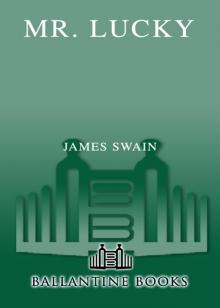 Mr. Lucky
Mr. Lucky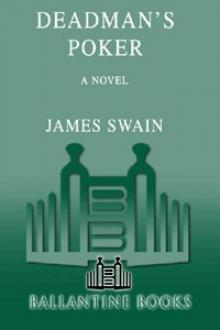 Deadman's Poker: A Novel (Tony Valentine)
Deadman's Poker: A Novel (Tony Valentine)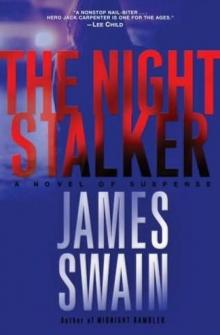 The Night Stalker jc-2
The Night Stalker jc-2 Loaded Dice tv-4
Loaded Dice tv-4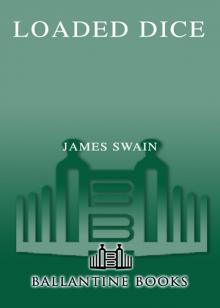 Loaded Dice
Loaded Dice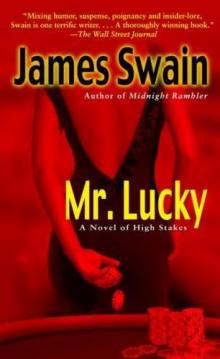 Mr. Lucky tv-5
Mr. Lucky tv-5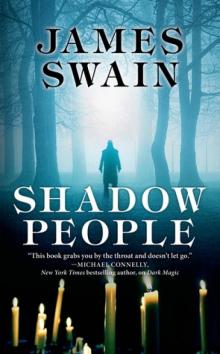 Shadow People
Shadow People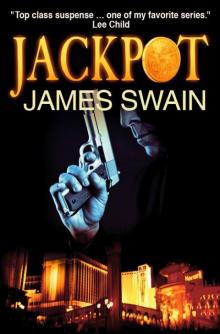 Jackpot tv-8
Jackpot tv-8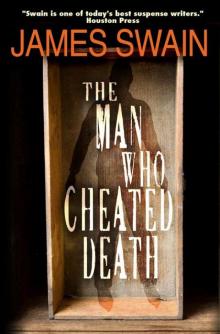 The Man Who Cheated Death (Vincent Hardare)
The Man Who Cheated Death (Vincent Hardare)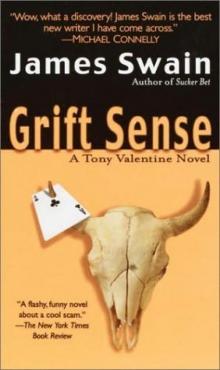 Gift sense tv-1
Gift sense tv-1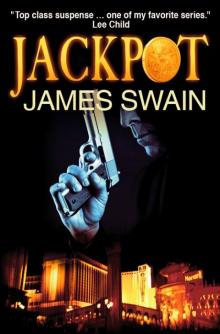 Jackpot (Tony Valentine series)
Jackpot (Tony Valentine series)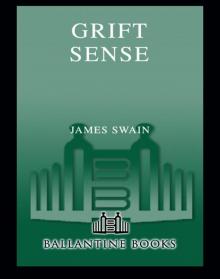 Grift Sense
Grift Sense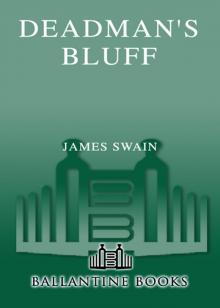 Deadman's Bluff
Deadman's Bluff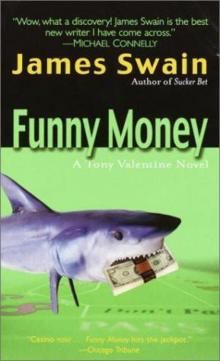 Funny Money tv-2
Funny Money tv-2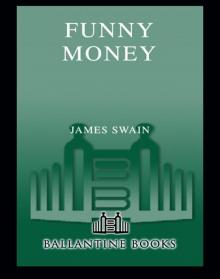 Funny Money
Funny Money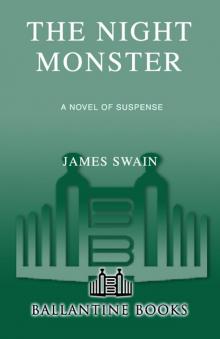 The Night Monster
The Night Monster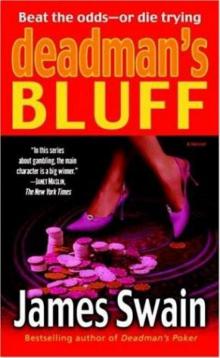 Deadman's Bluff tv-7
Deadman's Bluff tv-7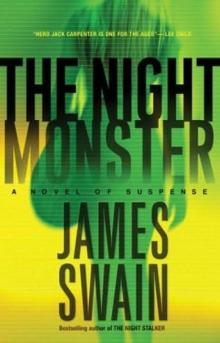 The Night Monster jc-3
The Night Monster jc-3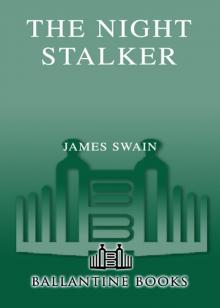 The Night Stalker
The Night Stalker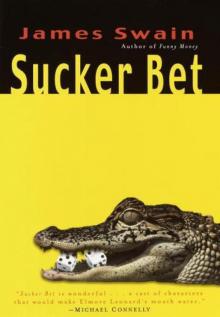 Sucker Bet tv-3
Sucker Bet tv-3